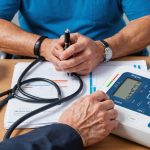Health screenings serve as a crucial tool in the proactive management of personal health. By undergoing regular screenings, individuals can significantly enhance their chances of catching diseases such as cancer and diabetes early, when treatment is often more effective. In this article, we will explore how regular health screenings contribute to early disease detection and identify key tests that individuals should prioritize to maintain their well-being. Understanding the role of preventive care can help you make informed decisions about your health and encourage a more proactive approach towards illness prevention.
The Role of Regular Screenings in Disease Detection
Regular health screenings play a vital role in identifying diseases before symptoms manifest. Many serious conditions, including cancer, diabetes, and cardiovascular diseases, often develop silently, making early detection through screenings crucial in managing health risks. By participating in these screenings, you can uncover underlying issues that may require further investigation or prompt medical attention.
In parallel : How can you boost your immune system naturally through lifestyle changes and dietary choices?
When you engage in screenings, you contribute to a system of preventive care that focuses on identifying health problems early when they are more treatable. This proactive approach can lead to significant improvements in health outcomes, reducing the potential for complications later on. For instance, cancer screenings, such as mammograms for breast cancer and colonoscopies for colorectal cancer, are designed to detect signs of disease before they progress to more advanced stages.
The impact of regular screenings extends beyond just individual health; it benefits society at large by lowering healthcare costs associated with late-stage treatments and hospitalizations. Early detection often translates to less aggressive treatments, which can improve quality of life for patients. Furthermore, engaging in regular health screenings fosters a sense of responsibility towards personal health, encouraging you to stay informed and proactive about your well-being.
Additional reading : What strategies can help you maintain motivation when pursuing long-term health goals?
In summary, the importance of regular screenings cannot be overstated. They serve as a cornerstone of preventive healthcare, enabling early detection of various diseases, including cancer and chronic conditions. By prioritizing these tests, you are not only investing in your health but also empowering yourself to take control of your future well-being.
Key Screenings for Cancer Detection
Cancer is one of the leading causes of death globally, making early detection through screenings vital. Various types of screenings are available depending on age, gender, and personal risk factors. Understanding which tests to undergo is essential for effective disease management.
For women, routine breast cancer screenings such as mammograms are recommended starting around the age of 40 or earlier if there is a family history of breast cancer. Mammograms can detect tumors that are too small to be felt, allowing for timely intervention. Similarly, cervical cancer screenings through Pap smears should begin at age 21, with follow-up tests as recommended by healthcare providers.
Men should also take prostate health seriously. Prostate-specific antigen (PSA) tests can help detect prostate cancer early. The decision to start testing can be influenced by individual risk factors, including age and family history.
Colorectal cancer screening is recommended for both men and women, typically beginning at age 45. This can involve colonoscopies, which allow doctors to visualize the colon and rectum for polyps or cancer. Early detection through these screenings is crucial, as colorectal cancer often does not present symptoms until it is in advanced stages.
By prioritizing these cancer-related screenings, you put yourself in a better position to catch diseases earlier, increasing your chances of successful treatment. Regular consultations with your healthcare provider can help determine your personal risk factors and guide you on the appropriate testing schedule.
Vital Screenings for Diabetes and Cardiovascular Diseases
Diabetes and cardiovascular diseases are two prevalent conditions that can lead to significant health complications if left undetected. Regular screenings for these diseases are essential for anyone at risk, especially those with family histories or lifestyle factors contributing to these conditions.
For diabetes, screening typically involves blood tests to measure blood glucose levels. The American Diabetes Association recommends that adults aged 45 and older, or those with risk factors such as obesity or a family history of diabetes, should be screened regularly. Early detection allows for timely intervention through lifestyle changes or medication, preventing complications associated with diabetes, such as nerve damage and cardiovascular conditions.
In terms of cardiovascular health, regular cholesterol screenings are essential. High cholesterol can lead to blockages in arteries, increasing the risk of heart attacks and strokes. Adults should begin cholesterol testing at age 20, with follow-ups every four to six years. Those with higher risk factors, including high blood pressure or a family history of heart disease, may need more frequent screenings.
Additionally, blood pressure checks are a crucial part of preventive healthcare. High blood pressure often goes unnoticed and can lead to severe health issues, including heart disease and kidney damage. Routine blood pressure screenings can help identify hypertension early, allowing for lifestyle adjustments and medical intervention as needed.
By prioritizing these screenings for diabetes and cardiovascular diseases, you are taking significant steps towards maintaining your overall health. Regular testing can lead to early detection and management, greatly improving your quality of life.
The Importance of Regular Health Checks
Regular health checks encompass a wide range of screenings and evaluations that help monitor overall health and detect potential issues before they escalate. These check-ups can include physical examinations, blood tests, and screenings for various diseases and conditions.
A comprehensive annual health check can provide valuable insights into your current health status. These visits allow healthcare providers to assess your risk factors for diseases, including metabolic conditions, cancers, and cardiovascular issues. The information gathered can guide personalized health strategies that address your specific needs.
During these health checks, doctors may conduct blood tests to monitor for conditions such as high cholesterol, diabetes, and liver function. Timely identification of these issues can lead to early treatment, preventing complications that arise from untreated conditions.
Furthermore, regular health checks encourage open communication with healthcare providers. This dialogue can be vital for discussing any health concerns or changes you may experience. Your healthcare provider can give tailored advice on lifestyle modifications, dietary changes, and preventive measures that can enhance your well-being.
As you age, the importance of regular health checks grows. Many diseases and conditions become more prevalent with age, making it crucial to stay vigilant about your health. Establishing a routine for health checks not only helps in early detection but also empowers you to take control of your health journey.
In essence, prioritizing regular health checks is a fundamental aspect of preventive healthcare. These visits can lead to early detection of diseases and provide a comprehensive overview of your health, allowing you to make informed decisions for a healthier future.
In conclusion, regular health screenings are a cornerstone of effective preventive care. They play a significant role in the early detection of diseases, including cancer, diabetes, and cardiovascular conditions. By prioritizing these screenings, you are taking proactive steps towards safeguarding your health and well-being.
Understanding the specific tests you should focus on, such as cancer screenings, diabetes assessments, and cardiovascular evaluations, can help you navigate your health journey with confidence. Regular health checks not only provide valuable insights into your current health status but also foster a collaborative relationship with your healthcare provider.
By committing to regular screenings and health checks, you empower yourself to detect potential issues early, giving yourself the best chance for effective treatment and improved health outcomes. Take charge of your health today, and ensure that you are prioritizing the screenings and tests that matter most for your unique health profile.











